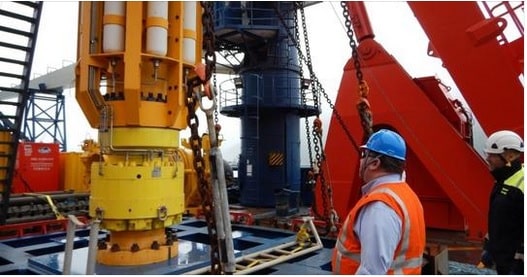U.S. Interior Proposes Rules to Strengthen Offshore Drilling Safety

The U.S. Interior Department’s Bureau of Safety and Environmental Enforcement on Sept. 14 proposed new and revised safety rules and standards for oil and gas operations at the Outer Continental Shelf in the Gulf of Mexico.
This proposal is in the extension of the 2019 Well Control Rule and mainly focuses on well integrity and blowout prevention with the incorporation of the latest technology. The department has also considered lessons learned from previous incidents and operator’s experience and the revisions built on the 2010 Deepwater Horizon tragedy that spewed 4.9 million barrels of oil in the ocean for approximately three months, while drafting the new set of rules. The revised standards are expected to help protect workers’ lives from the effect of blowouts and prevent environmental damage caused due to oil spills.
The revised rules would require failure analysis and investigation in 90 days instead of 120 days. The proposal would remove the option of submitting failure data to designated third parties and instead require the direct submittal to the bureau. The new rules would also require blow out preventers to be able to close and seal the wellbore at a designed tolerance in case of any incident (kick) at all times. Operators would be required to keep a close check on the functioning of the blowout preventer and test it periodically with submission of test results to the department within 72 hours of completion of test if the department’s officials are not present at the time of testing.
The proposal follows a 2021 executive order that directed the department to review the 2019 rule to evaluate potential revisions to promote and protect public health and the environment, among other identified policy goals. This review confirmed that the 2019 rule contains many provisions that help ensure that federally regulated outer Continental Shelf oil and gas operations are conducted safely and in an environmentally responsible manner. The proposed rule would address only select provisions that would further promote the President’s policies and environmental objectives. Among similar work across states, Illinois lawmakers are considering a bill proposed in the General Assembly for the amendment of the Environmental Protection Act for greenhouse gasses. The California Legislature also introduced an assembly bill for the oil spill response plan earlier this year in January 2022.
EnerKnol Pulses like this one are powered by the EnerKnol Platform—the first comprehensive database for real-time energy policy tracking. Sign up for a free trial below for access to key regulatory data and deep industry insights across the energy spectrum.
ACCESS FREE TRIAL